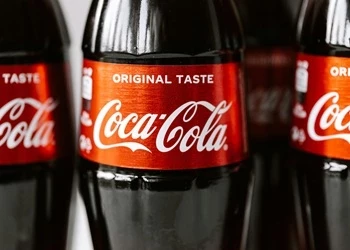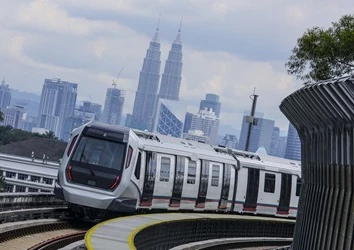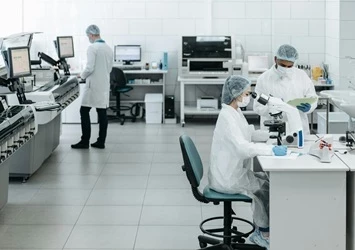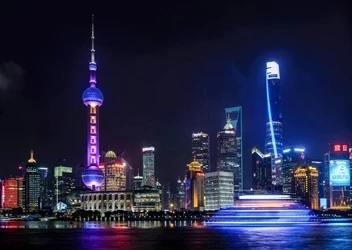Unilever revolutionizes manufacturing network through digital transformation
Unilever is creating connected, highly efficient factories of the future to transform manufacturing processes
Add bookmark
Unilever is advancing its smart manufacturing capabilities through digital transformation driven by artificial intelligence (AI), internet of things (IoT) and automation. That’s according to Vicky Cuthbert, chief product supply officer for personal care and Tri Pham-Manh, personal care head of supply chain, Greater Asia, speaking on the Voices in Transformation podcast.
The consumer packaged goods company is creating connected, highly efficient ‘factories of the future’ by integrating consumer insights, human expertise and advanced technology to revolutionize manufacturing processes. The aim is to meet evolving consumer needs with unmatched speed and precision.
Last year, Unilever expanded its partnership with Accenture to apply generative AI to drive efficiencies and improved business agility.
Join the PEX Network community

Don't miss any news, updates or insider tips from PEX Network by getting them delivered to your inbox. Sign up to our newsletter and join our community of experts.
Learn MoreUnilever’s exciting digital transformation journey
Cuthbert and Pham-Manh explained how the Unilever Manufacturing System is driving leading-edge operational performance and how the organization is building highly advanced factories with full connectivity, real-time scenario planning and seamless human–machine interactions.
Unilever has gone through a “very exciting” digital transformation journey, Pham-Manh said. “The factory teams are fully connected to the rest of the business. They can sense needs from the marketplace and respond immediately, allowing them to bring even more value.”
Unilever is also now “fully connected” to suppliers, enabling it to know exactly what requirements are and how partners are working. “This has made a huge improvement in productivity,” Pham-Manh said.
The Unilever Manufacturing System is a lever for operational excellence (OPEX), providing a common framework for ensuring the business is driving excellence across operations, added Cuthbert.
Register for All Access: AI in Business Transformation 2025!
Unilever’s ‘factories of the future’
Unilever refers to its manufacturing sites as ‘factories of the future’ – factories that are “fully integrated” with the entire value chain, said Pham-Manh. “This is not only to work with our customers but also with our partners and suppliers. We connect different supply chains into one operating plan across the value chain.”
What’s more, factories must be able to work in real-time with scenario planning, transferring planning into execution and continuously optimizing, Pham-Manh added. “In the end, the manufacturing has to deliver the best product to the market.”
Balancing technology and talent
Balancing technology with talent is an important element of Unilever’s digital transformation, said Cuthbert. “This movement does have an impact on the organization’s structure in relation to the types of roles we need, how the organization works starting from the team you need to run a production line or a factory through to how you actually run all these programs together.”
This is an area Unilever is reflecting on, Cuthbert added. “It has a massive impact on the skills all of us need. For every single one of us, there’s a huge need to upskill and learn. Also, the type of talent that we recruit and the type of experiences we give workers in their career is very much changing.”
The most important things about Unilever’s transformation are its teams and the culture that it can create, Cuthbert concluded.
Image credit: Unilever
Accelerating business transformation with bespoke solutions on ServiceNow App Engine
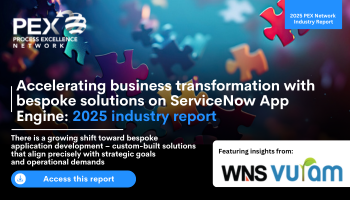
Today, off-the-shelf software solutions offer diverse features that enable vast opportunities to implement and maintain business transformation. However, in some circumstances, capabilities lack the flexibility and specificity required to address the unique challenges and workflows of individual organizations. As a result, there is a growing shift toward bespoke application development – custom-built solutions that align precisely with strategic goals and operational demands.
Download this report to explore how enterprises can harness the power of custom applications to drive meaningful transformation. With the growing adoption of low-code platforms like ServiceNow App Engine, organizations are building custom applications faster and with greater control. By empowering both IT professionals and citizen developers to build tailored solutions, organizations can significantly reduce time to value while maintaining control over quality and compliance.
Download Now


